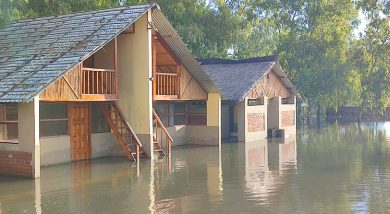Less malawians qualify For mortgage—report
Less than one percent of Malawians qualify for a mortgage—a debt instrument secured by the collateral of specified real estate property that the borrower is obliged to pay back—as lenders target salaried individuals and businespeople.
This is according to the 2017 Centre for Affordable Housing Finance in Africa (CAHF), a non-profit organisation that promotes investment in affordable housing and housing finance in Africa.
As a result of this, mortgage percent to gross domestic product (GDP) ratio in Malawi has remained static at 0.5 percent, an indication that many Malawians are still straggling to access the facility.
The report shows Malawi below regional neighbours such as Botswana at eight percent, Mauritius at 13 percent and South Africa at 33.8 percent.
Reads the report in part: “Prices of a newly built entry-level house, built by a developer, averages K8.5 million [$11 643]. Since only 30 percent of a household’s income is allowed towards servicing of loans or mortgage payments, a borrower needs to earn at least K700 000 [$978.9] to afford the house.
According to CAHF, a plan to build 4 200 additional houses and develop 5 800 plots between 2007 and 2016 by Malawi Housing Corporation (MHC) did not reach fruition, with only 481 houses completed.
MHC had plans to construct 15 000 houses with 2 500 expected to start in the next financial year despite similar plans having not gained ground in the past. There are currently over 60 000 people on MHC’s waiting list.
The report says with urbanisation rate at 3.8 percent against a population growth rate of 2.8 percent, and an annual house demand of 21 000 against the 11 000 built annually, Malawi’s quest for meeting demand for housing services is a far-fetched dream.
In an interview, Fred and Ted Properties managing director Fred Kapito said that high interest rates and lack of disposable income have made people to shift their focus away from the residential market.
“At the moment, many people do not have the capacity to develop the residential market as the economy is not allowing people to procure houses because they need to save for a long time before they procure a house, ending up channelling the money to other priority issues,” he said.
Pioneer Properties director Zaahid Sattar said with interest rates hovering at around 30 percent, the value of properties end up doubling after about three years, which is not good for the development of the residential market.
“As a result, people start shunning away. We really would love to see authorities continue working on bringing down the interest rates, which have been a hindrance for the growth of the sector,” he said, adding that most Malawians end up dying without owning a house. n






